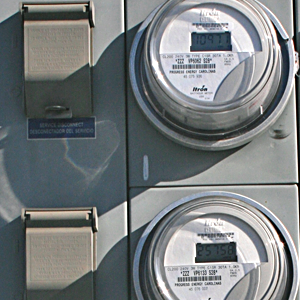
The Importance of Electrical Safety and Maintenance for Your Home and Business
May 7, 2015
“Safety First” and clear communications among the work crew are important elements of safe electrical installation, maintenance, and repair activities.
Electrical hazards, including shocks from power tools to incorrectly installed socket outlets, are major causes of death and serious injury on residential as well as on business / construction worksites. Regardless if the project is a home improvement, room alteration, retail or high-rise building, or buried data communication construction, electrical work must always be performed by a credible and licensed electrical contractor in accordance with standard safety regulations and safe practices.
Licensed Contractors
In accordance with WorkSafe Victoria, the industry standard for all electrical construction and wiring, including switchboards, must be inspected, tested and certified by a licensed (A Class) electrician prior to connecting to the main supply. Alterations, additions and / or repairs are included under this doctrine.
Demolitions
It is imperative all electrical power to buildings, meters, etc. is disconnected prior to demolishing any property. Severing live electrical cables can be deadly. It not only is dangerous but also illegal to expose employees to electrical hazards and risk. In addition to probable death or injury, wiring of adjacent properties, electricity distribution networks, and power supplies may also be impacted. To avoid accidents, overheating, sparks or fire, or other hazards, any unused permanent and construction wiring must be appropriately terminated or removed (by a licensed electrician).
Safety Rules and Penalties
The Occupational Health and Safety Act 2004 imposes penalties for exposing employees to electrical hazards and risk through unsafe work practices. The Victorian Electricity Safety Act 1998, and the Electricity Safety (Network Assets) Regulations 1999 imposes penalties for interrupting or damaging electrical supply networks or the property of other network users, and for costs incurred as a result of interrupting the power supply. Established rules and penalties are intended to protect employers, workers, and the public.
Fall Protection
Electrical work often involves working above the ground at significant heights, such as on multi-story residences or business buildings. Prior to commencing electrical work, electricians should avoid wearing loose fitting clothing and remove all jewelry, chains, watches, etc. that may get entangled or cause shock or burns (due to electrical conduction). Stable platforms, fall protection systems (safety harnesses, restraints), and nets (extreme heights) should be employed. Worker safety, property, and those below the elevated work activity are all at risk. The area should be cleared while overhead work is being performed.
Overhead Lines
When electrical supplies are connected or disconnected, caution should be exercised to avoid contact with adjacent high voltage lines. Aerial conductors on site must be insulated, clearly identified and marked, and have appropriately specified height clearances. While battens draped on powerlines do not protect workers from electrocution or electric shock, they do serve as a visual warning of high voltage, and protect the powerlines themselves from mechanical damage.
Trench Safety (Underground Installations)
Open trenches are hazards to both the public and workers. Trenches must have guards in place to alert and protect the public, homeowners, and others to the danger of an open pit hazard, and electrical / communication cable at the bottom of the trench. A plastic warning tape alerting anyone digging near the cable in the future, should be placed in the top inches of the compacted trench cover when the electrical trench is backfilled and compacted,.
It is an additional precaution for installers working in deep trenches (exceeding 4’-5’ deep) to shore the sides of the trench to prevent cave-ins during electrical cable installation. In certain areas (tunnels, culverts) workers may need to use protective respirator equipment in compliance with confined space safety requirements.
O'Brien Electrical and Communications
26 Gordon St., Rosebery NSW 2018
Email: jobrienelectrical@gmail.com
Mobile: 0407 370 950
Servicing Inner West And Eastern Suburbs Including But not limited to the following areas:
- Redfern
- Newtown
- Glebe Annandale
- Surry Hills
- Kogarah
- Randwick
- Coogee
Optimized by NetwizardSEO.com.au
Recent posts
- O' Brien Electrical and Communications: Your Residential and Commercial Electrician in New South Wales
- The Importance of Electrical and Data Communications Upgrade in Technology
- Top 5 Checklist that you Must Know Before Hiring an Electrical Services Company
- Using LED Lights to Your Advantage - Is It Really Better than Regular Light Bulbs?
- What You Need to Know about Commercial Preventative Maintenance Programs with O'Brien Electrical and Communications
- The Importance of Electrical Safety and Maintenance for Your Home and Business
- Importance of Installing Burglar Alarms in Your Home
- Importance of having a CCTV camera in your home?
- Professional Residential Electrical Contractors in New South Wales
- Trusted Commercial Electrical Installations in NSW
- Hiring Commercial Electrical Contractors
- Located in Inner West or the Eastern Suburbs? Look no further for a an electrical or communications specialist for your home or business
- Electrical Installations - Leave it to the Professionals
- Residential Electrical Services in New South Wales
